#Alberto Galli
Explore tagged Tumblr posts
Text
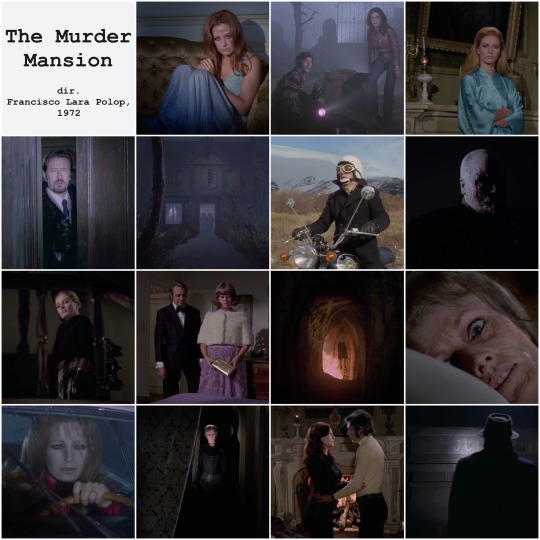
The Murder Mansion
directed by Francisco Lara Polop, 1972
#The Murder Mansion#La Mansion De La Niebla#Francisco Lara Polop#movie mosaics#Ida Galli#Andrés Resino#Andres Resino#Lisa Leonardi#Analía Gadé#Franco Fantasia#Alberto Dalbés
3 notes
·
View notes
Text
youtube
Ver para crer: "Quando Marta gritou da tumba" (La Mansión de la Niebla, 1972)
#La Mansión de la Niebla#La Mansion de la Niebla#70's horror#horror movies#spanish horror#Maniac Mansion#Oswald Dopke#Ida Galli#Lisa Leonardi#George Rigaud#Franco Fantasia#Eduardo Fajardo#Saturno Cerra#Alberto Dalbes#Yelena Samarina#Ingrid Garbo#Peter Sattmann#Daniela Ziegler#Youtube
1 note
·
View note
Text
Marco Tarchi ha affermato giustamente che il populismo ha un nucleo di caratteri ricorrenti, che lo fanno somigliare ad una ideologia
Si è scelto qui di seguire l’ottimo saggio di Matteo Truffelli per distinguere in questo mare di termini confusi i diversi concetti e cercare una definizione convincente di “antipolitica”. Essa va anzitutto distinta dal “qualunquismo”, termine che andrebbe usato esclusivamente per il movimento di Guglielmo Giannini, ma che proprio per confronto con quell’esperienza fu usato (e lo è ancora) per…

View On WordPress
#Alberto Libero Pirro#antipolitica#autorità#delegittimazione#Giorgio Galli#legittimazione#libertà#Marco Tarchi#Max Weber#populismo#qualunquismo#rifiuto
0 notes
Text
Marco Tarchi ha affermato giustamente che il populismo ha un nucleo di caratteri ricorrenti, che lo fanno somigliare ad una ideologia
Si è scelto qui di seguire l’ottimo saggio di Matteo Truffelli per distinguere in questo mare di termini confusi i diversi concetti e cercare una definizione convincente di “antipolitica”. Essa va anzitutto distinta dal “qualunquismo”, termine che andrebbe usato esclusivamente per il movimento di Guglielmo Giannini, ma che proprio per confronto con quell’esperienza fu usato (e lo è ancora) per…

View On WordPress
#Alberto Libero Pirro#antipolitica#autorità#delegittimazione#Giorgio Galli#legittimazione#libertà#Marco Tarchi#Max Weber#populismo#qualunquismo#rifiuto
0 notes
Text
Marco Tarchi ha affermato giustamente che il populismo ha un nucleo di caratteri ricorrenti, che lo fanno somigliare ad una ideologia
Si è scelto qui di seguire l’ottimo saggio di Matteo Truffelli per distinguere in questo mare di termini confusi i diversi concetti e cercare una definizione convincente di “antipolitica”. Essa va anzitutto distinta dal “qualunquismo”, termine che andrebbe usato esclusivamente per il movimento di Guglielmo Giannini, ma che proprio per confronto con quell’esperienza fu usato (e lo è ancora) per…

View On WordPress
#Alberto Libero Pirro#antipolitica#autorità#delegittimazione#Giorgio Galli#legittimazione#libertà#Marco Tarchi#Max Weber#populismo#qualunquismo#rifiuto
0 notes
Text
Marco Tarchi ha affermato giustamente che il populismo ha un nucleo di caratteri ricorrenti, che lo fanno somigliare ad una ideologia
Si è scelto qui di seguire l’ottimo saggio di Matteo Truffelli per distinguere in questo mare di termini confusi i diversi concetti e cercare una definizione convincente di “antipolitica”. Essa va anzitutto distinta dal “qualunquismo”, termine che andrebbe usato esclusivamente per il movimento di Guglielmo Giannini, ma che proprio per confronto con quell’esperienza fu usato (e lo è ancora) per…

View On WordPress
#Alberto Libero Pirro#antipolitica#autorità#delegittimazione#Giorgio Galli#legittimazione#libertà#Marco Tarchi#Max Weber#populismo#qualunquismo#rifiuto
0 notes
Text
Marco Tarchi ha affermato giustamente che il populismo ha un nucleo di caratteri ricorrenti, che lo fanno somigliare ad una ideologia
Si è scelto qui di seguire l’ottimo saggio di Matteo Truffelli per distinguere in questo mare di termini confusi i diversi concetti e cercare una definizione convincente di “antipolitica”. Essa va anzitutto distinta dal “qualunquismo”, termine che andrebbe usato esclusivamente per il movimento di Guglielmo Giannini, ma che proprio per confronto con quell’esperienza fu usato (e lo è ancora) per…

View On WordPress
#Alberto Libero Pirro#antipolitica#autorità#delegittimazione#Giorgio Galli#legittimazione#libertà#Marco Tarchi#Max Weber#populismo#qualunquismo#rifiuto
0 notes
Text
L' 8 Marzo a Solbiate Olona
L' 8 marzo con gli artisti solbiatesi: Monica Monti, Laura Mior, Emma Caprioli, Paola Sammarco, Pietro Galli, Alberto Castelnuovo, Massimo Ranieri, Antonio Filippini, Giuseppe Catone
"L’arte è un veicolo efficace e trainante di formazione e di trasmissione di valori della vita. Per questo, oggi, rendiamo omaggio esprimendo riconoscenza al protagonismo artistico delle donne".
il Presidente della Repubblica Sergio Mattarella https://www.quirinale.it/elementi/107940

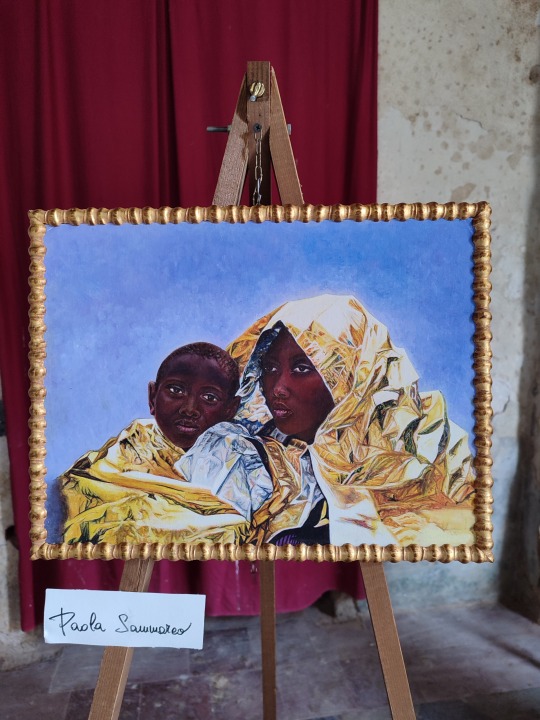

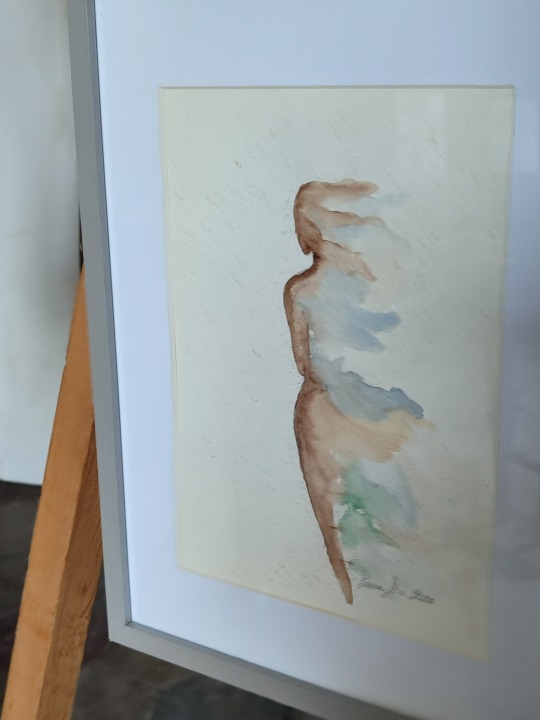
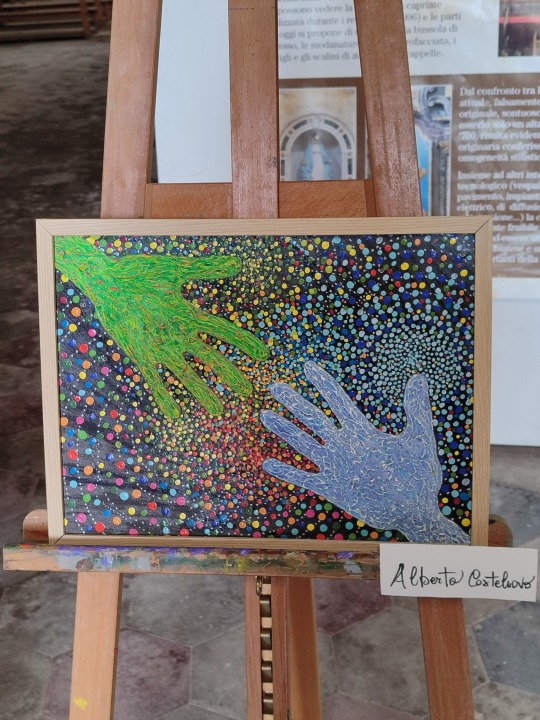
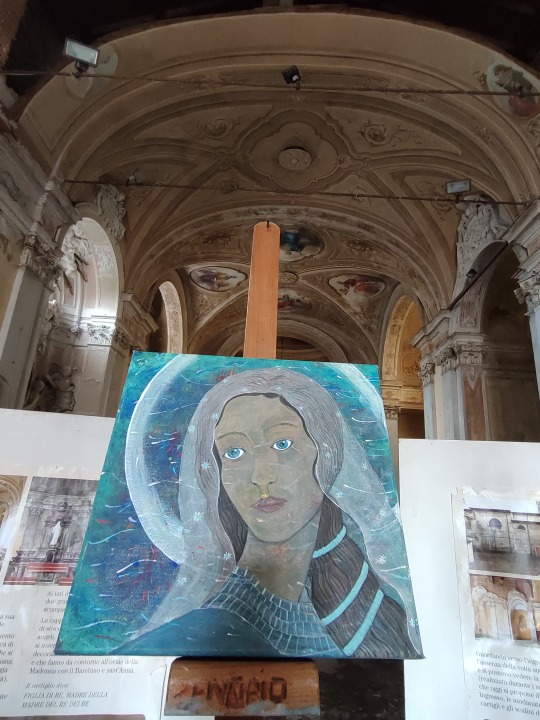



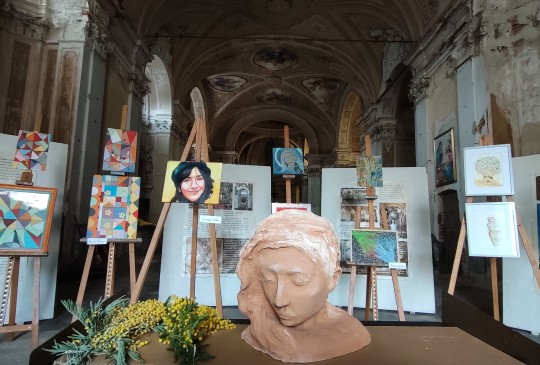
3 notes
·
View notes
Photo

https://archive.org/details/sovereigntyinrui00unse_2/mode/2up
Natural history : toward a politics of crisis / George Edmondson and Klaus Mladek -- Left and right: why they still make sense / Carlo Galli -- Politics in the present / Roberto Esposito -- Cujusdam nigri & scabiosi Brasiliani : Rancière and Derrida / Alberto Moreiras -- Pasolini's acceptance / Rei Terada -- Reopening the Plato question / Adam Sitze -- The royal remains : the people's two bodies and the endgames of sovereignty / Eric L. Santner -- Arendt : thinking cohabitation and the dispersion of sovereignty / Judith Butler -- Beyond the state of exception : Hegel on freedom, law, and decision / Andrew Norris -- Humans and (other) animals in a biopolitical frame / Cary Wolfe -- Thing-politics and science / Carsten Strathausen
3 notes
·
View notes
Text
“Madame de Naglowska - spettri e misteri” di Maurizio Massaroni Ferrante al Teatro Hamlet Debutterà giovedì 24 ottobre 2024 alle ... #madamedenaglowska #mariafrangella #mauriziomassaroniferrante #misteri #spettri #teatrohamlet #tinaagrippino https://agrpress.it/madame-de-naglowska-spettri-e-misteri-di-maurizio-massaroni-ferrante-al-teatro-hamlet/?feed_id=7604&_unique_id=6719960c500a1
0 notes
Text

Exit 5, Roberto Vitali a cura di Patti Campani, Roberta Fanti, Gianni Pedullà, Gaetano Buttaro, Anna Boschi
Nel Gennaio scorso è scomparso Roberto Vitali, intellettuale, storico e critico d’arte contemporanea. Collaboratore di numerose testate giornalistiche e emittenti radiofoniche. Fondatore insieme ad Arrigo Grazia e altri dello Spazio Cultura Navile e successivamente di Zoo, spazio autogestito da un gruppo di artisti e del quale era il presidente. Vitali era profondamente impegnato anche in campo sociale: nota era la sua attività di sensibilizzazione verso i diritti delle minoranze e di propaganda a favore della pace, la sua attenzione all’annosa e irrisolta questione palestinese. Ad un anno esatto dalla sua scomparsa siamo riusciti ad organizzare una grande manifestazione in suo ricordo. Oltre trecento artisti hanno aderito all’iniziativa. Hanno dato il proprio contributo numerosi intellettuali e esponenti della cultura: Renato Barilli, Roberto Daolio, Valerio Dehò, Edoardo Di Mauro, Giuliana Galli, Arrigo Grazia, Patrizia Landi, Monica Miretti, Alberto Zanchetta. Hanno aderito molte associazioni culturali e gallerie d’arte, mettendo a disposizione i propri spazi per accogliere il lavoro di tutti i partecipanti: Gall. Ariete, Gall. Cavalieri, Contropiani, Fiorile Arte, Interno e Dum Dum, Istituto di Cultura Germanica, Laboratorio Whitman, Maison Francaise, Neon, Quartiere S. Vitale, Sesto Senso, Spazio Cultura Navile. La mostra comprende: -“Exit”, quinta edizione della rassegna ideata dall’associazione culturale C. Voltaire di Bologna, e che quest’anno sarà dedicata a Roberto Vitali che ne curò la prima edizione, ideandone anche il titolo. -“Social Duty”, progetto internazionale di Mail Art interamente dedicata al critico bolognese che ben conosceva e apprezzava questa forma d’arte. -“Roberto Vitali” personale omaggio degli artisti che lo conoscevano, con la presentazione di opere a lui dedicate. Organizzatori: Patti Campani, Roberta Fanti, Gianni Pedullà, Gaetano Buttaro, Anna Boschi. gennaio 2001
0 notes
Text
Wikiperlia (2)
Der Wikipediaartikel über die Band Bulldozer ist eine Perle:»Nach mehreren Proben mussten die Mitglieder der Band 1981 ihren Wehrdienst ableisten und so lag Bulldozer erstmal auf Eis.«»Dario Carria und Erminio Galli mussten die Band nach der Veröffentlichung verlassen, weil ihre Eltern ihnen nicht erlaubten, bei Bulldozer zu spielen;«»während Alberto Contini, besser bekannt unter seinem Pseudonym…
View On WordPress
0 notes
Link
30 anni di vita politica di Magione e del Trasimeno nel libro dell'ex-sindaco Bruno Ceppitelli Trent’anni di vita politica del Comune di Magione nel libro “Una storia importante, passione civile e politica di un amministratore locale” scritto da...
#MAGIONE#POLITICA#amministratorelocale#passionecivile#politica#pubblicaamministrazione#storia#storiapolitica
0 notes
Video
youtube
Ginger e Fred Official Trailer #1 - Marcello Mastroianni Movie (1986)
TONINO GUERRA Federico Fellini2 BALLERINI: QUANDO SI SEPARERANNO L UOMO ANDRA' IN MANICOMIOSoggetto Federico Fellini, Tonino Guerra. Sceneggiatura Federico Fellini, Tonino Guerra, Tullio Pinelli Produttore Alberto Grimaldi Fotografia Tonino Delli Colli, Ennio Guarnieri Montaggio Nino Baragli, Ugo De Rossi, Ruggero Mastroianni Effetti speciali Adriano Pischiutta Musiche Nicola Piovani Scenografia Dante Ferretti Trucco Amedeo Alessi Interpreti e personaggi Giulietta Masina: Amelia Bonetti/Ginger Marcello Mastroianni: Pippo Botticella/Fred Franco Fabrizi: Aurelio, il presentatore Ezio Marano: scrittore Totò Mignone: Totò Jacques Henri Lartigue: Frate Gerolamo Augusto Poderosi: Evelina Pollini Friedrich von Ledebur: ammiraglio Aulenti Friedrich von Thun: Armando Bissanti Antonino Iuorio: ispettore di produzione Fabrizio Fontana: Floris Tartarina Barbara Scoppa: Barbara, giornalista di gossip Elisabetta Flumeri: giornalista Claudio Botosso: giornalista nello studio televisivo Salvatore Billa: Clark Gable Leonardo Petrillo: Marcel Proust Daniele Aldrovandi: Marty Feldman Eolo Capritti: Telly Savalas Ginestra Spinola: chiromante Sergio Ciulli: figlio della chiromante Elena Cantarone: infermiera Alex Partexano: marinaio Stefania Marini: Stefania Roberto Accornero: autista pulmino Francesco Casale: Catanzaro, il mafioso Rosario Galli: Angelo Stefano Gragnani: De Nittis Ennio Antonelli: il facchino Giorgio Juorio: Salvatore Gianfranco Alpestre: avvocato rapito Franco Marino: impresario nani Davide Marotta: un nano Ivano Marescotti: un uomo del presidente Doppiatori originali Alberto Lionello: presentatore Tv Gianni Bonagura: Totò Mario Maranzana: Frate volante Corrado Gaipa: L'ammiraglio Aulenti Marco Bresciani: Travestito Oreste Lionello: presidente della rete televisiva, Woody Allen, scrittore Claudio Capone: un intervistatore Enzo Liberti: cameriere Pino Ammendola: onorevole Tartina Pino Insegno: cameriere Oreste Rizzini: presidente TV Solvejg D'Assunta: signora Silvestri, attrici, donna con corona Carlo Croccolo: signor Guadascone, frate guardiano Mario Maranzana: frate Gerolamo Piero Tiberi: Angelo HD
0 notes
Text
In a conversation with ADELINA DIACONU, MATTEO MEZZARO talks about his experience on stage, his favorite roles, which artists influenced his development in the last years and also about the difficulties he had to deal with while performing. Being a very special voice, he manages to combine very well baroque technique and belcanto repertoire. If you want to know how you can have the best of both worlds, you should definitely read this interview! Graduated in renaissance singing, organ and composition, the tenor Matteo Mezzaro is also a specialist in baroque and romantic opera. He studying operatic repertoire with the tenor Sergio Bertocchi. He performs in many concerts and opera production under the guidance of such prestigious baton as Z. Metha, M-W Chung, V. Galli, D. Oren, F.I.Ciampa, J. Begnamini, P. Auguin, O. Dantone, G. Leonhard, C. Hogwood, T. Koopman, M. Radulescu, F.M. Bressan, Jordi Savall, F.M. Sardelli, G. Bisanti, G. Ferro, etc.., and stage director like M. Znaniecki, V. Borrelli, D. Michieletto, D. Abbado, F. Micheli, G. Salvatores, P. Pizzi, I Stefanutti, D. Krief, etc… Especially at the beginning of his career, he performed in many roles from barock opera repertoir as Demetrio in Purcell’s The Fairy Queen at Wielki Theater in Poznan, as Mitrane in Mayr’s Demetrio at Festival Opera Obliqua (first performance in modern times), as Mitridate in Vivaldi’s Il tigrane at Festival Opera Barga (LU) under the baton of Federico Maria Sardelli, as Uriel in Haydn’s Die Schöpfung at Festival de Santander, as Marchese della Conchiglia in Piccinni’s La Cecchina at Piccolo Festival of FVG, as Eurillo in Scarlatti’s Gli equivoci nel sembiante at Teatro dei Differenti di Barga. In a moment of his career he choosed to work much more with romantic repertoire. He performed roles like Nemorino in L’elisir d’amore at Teatr Manoel in La Valletta (Malta), Mozart in Korsakov’s Mozart e Salieri at Teatro Verdi di Pisa, Fracasso in Mozart’s La finta semplice for ASLICO, Conte Alberto in Rossini’s L’occasione fa il ladro in Teatro Verdi di Trieste, Don Ottavio in Mozart’s Don Giovanni in festival ASLICO and in Piccolo Festival of FVG, Tenore Italiano in J.Strauss’ Capriccio in Metz (France), Alfredo in Verdi’s La Traviata for Opus Lirica in San Sebastian (Spain),Tenore Guglielmo in Donizetti’s Le convenienze e inconvenienze teatrali in Pisa, Lucca and Livorno, Beppe in Donizetti’s Rita at the Tearo comunale of Treviso, Camille de Rosillon in Lehar’s La vedova allegra in the Teatro Lirico di Cagliari, Cassio in the G. Verdi’s Otello at the Gran Teatro la Fenice of Venice, Beppe in the Leoncavallo’s Pagliacci at the Teatro del maggio musicale fiorentino and Teatro Massimo of Palermo, Rinuccio in the G. Puccini’s Gianni Schicchi at the Teatro Filarmonico of Verona. Also active in symphonic and sacred field, he sang Mayr’s Requiem, J. S. Bach’s Gottes Zeit ist die allerbeste Zeit, Haydn’s Theresienmesse, Handel’s Messiah, Carolin Te Deum and Ode for S. Cecilia’s day, Mozart’s Requiem, Haydn’s Die Schöpfung, Listz’ Via Crucis and Missa Solemnis, Rossini’s Petite Messe Solennelle di Rossini, Britten’s Saint Nicholas, Stravinsky’s Oedipus Rex just to name a few. He made his role debut as Paolino in Cimarosa’s Il matrimonio segreto at Teatro Malibran in Venice in 2010. Ciao Matteo and thank you for accepting our invitation! I know that these days you are in the middle of several representations with L’elisir d’amore by Gaetano Donizetti, in which you sing a role loved by any lyrical tenor. Tell us, please, what does the music of Donizetti means for you and how do you feel returning at Teatro Lirico di Cagliari? First of all thanks for the invitation. It’s a pleasure for me to have this conversation with you and your special Magazine. As you said in this moment I’m singing Nemorino in Cagliari, one of the roles I always dreamed to sing. I feel comfortable singing Donizetti’s music because it is good for my voice. In this music my voice finds the right ground to express itself.
It’s also a pleasure to sing it here, in Cagliari, because it’s an opera house that believed in me from the beginning of my career. Tell us some details about this fresh production of E’elisir d’amore, conducted by Roberto Gianola and directed by Michele Mirabella, with performances between 4-15 March 2022. How was the collaboration with the cast and the team? How did you perceive the directorial concept? I already sang this role with M° Gianola, so it was a pleasure for me to meet him again in Cagliari. I felt very lucky. I have wonderful colleagues who are friends and singers I’ve already work with. We’re working as a real team and think my Nemorino has improved also thanks to the interaction with the other characters of the opera. Which is the guideline of Nemorino – your character? How did you conceive your role, guided by the stage director of the show? I haven’t a possibility to work directly with Michele Mirabella, the original director of the production, because this is its third revival. Anyway I put on stage all my ideas about Nemorino: he is shy, that’s why he can’t tell her the truth, but when he is drunk, after the trick of Dulcamara, he looses every control and he puts all his expectation on the “Elisir d’amore”. He is an interesting character to portray because he faces many obstacles during his evolution during the opera. Nemorino represents youth, energy and that’s because he needs a dynamic actor on stage. I think that maybe It’s more stressful his theatrical aspect than his vocal request. Matteo, which artists influenced your career in the last years? I am referring here also at conductors and stage directors, who, these days, have a major influence on a performance. Have you ever had any kind of difficulties with these two entities? In my career there are many artists who influenced me, but there is expecially one above all: Graham Wick. I worked with him on Don Giovanni. The most important training to enter totally in the plot was finding the different meanings of the text. As concerns the conductors I worked really good with Maestro Mariotti. I also expressed him my admiration for the process of the rehearsals and his research of perfection. During the latest years the theatres have the necessity to product as much as possible and many times there isn’t time to deepen. Today, probably the music is not more important than visual aspects of the production, but It always depends on the sensibility of the artists that are involved in the creation. Your vocal category is very appreciated, but still very hard to maintain in it’s full capacity all the time. Have you ever had difficult moments, when you felt that your voice was on the wrong path, technically speaking? How did you overcome them? I don’t know if it’s possible to maintain the full capacity of the voice for the entire career, but I know, in my experience, that the knowledge of the body and the voice are probably the must important way to make a long career. I mean, a lifestyle without excesses (healthy food, good sleeping) and a daily practicing of technique, is fundamental to build a solid career. If you know what is dangerous for your voice, you know how to manage all the obstacles. You started at a young age to study music, you refined your training under the guidance of important masters, you graduated in renaissance singing, organ and composition, and today you are a specialist in baroque and romantic opera. How important are for you belcanto technique and belcanto repertoire? The belcanto technique is really important as a foundation for the voice’s health. When I sang Baroque and Renaissance repertoire, I worked expecially about the interpretation and the singing style. I started to study technique with Maestro Bertocchi, and after this experience, I can say that it’s really important to know all the possibility of your voice before choosing the repertoire. Did you ever consider to share the accumulated knowledge with the younger singers, at masterclasses or, maybe, in Music Universities?
Yes, I thought about that, but at the same time I’m worried about the responsibility on the students’ voice. I believe that when you study singing, if you improve it’s not only thanks to the teacher. Singing is a process you have to do together with your teacher and it’s not certain you will be able to do it. But I would be ready and happy, If someone will ask me any advices, to share my experience. How do you see the future of opera perfomances, having in mind the situation and changes from these two years? The future has to be live performances, I don’t believes so much in streaming performances or other virtual solutions. I think perhaps the theatres have to invest in new music works, always bearing in mind that the theatre must stay in touch with the society’s sensibility. The theatre can be only a laboratories and experimental world. The music and the performance has to bring the audience in a dream. What does it mean for you to be successful? For me, during these years, the most important objective is to survive and to have the possibility to continue to work and live thanks to this job. I feel It’s important to continue to improve myself: this means success for me. Can you share with us some of your future engagements? Is there any role or musical piece that you dream to sing, but you don’t have yet the opportunity? In the next months I will sing alongside the Opv (Orchestra di Padova e del Veneto): I’ll perform in different concerts “Davide Penitente” by Mozart and the Rossini’s Stabat Mater. My next opera productions will be this summer, La Traviata and Turandot at the Arena di Verona Opera Festival 2022. There are other projects that are not confirmed yet. I dream and I’m working on the possibility to sing the roles of Duca di Mantova in Rigoletto, Edgardo in Lucia di Lammermoor, Gennaro in Lucrezia Borgia and in a next future Rodolfo in La Bohème. At the end of our interview, please tell us what is the most charming feature of opera? In my opinion Opera will have a future if we’ll continue to convey emotions to the audience. Sometimes, today, we work in a tight deadlines and we often go on stage not really sure. The audience has to be our first thought because without them we wouldn’t exist and our study-formation process too. Thank you, Matteo! In bocca al lupo! reposted from https://opera-charm.com/
0 notes
Text
RMC, ad esempio, ora è stata italianizzata ed ha perso quel sapore di internazionalità, di chic e simpatia che la distingueva dalle altre radio generaliste. Questa unicità le permetteva di vivere tranquilla pur con una minor audience (peraltro di profilo più alto della media). Invece, cosi omologata si è trovata nella mischia a confrontarsi con le radio “italiane” quali RTL 102.5, RDS , Deejay, Radio Italia, stazioni che hanno grandi audience e coperture e contro le quali sarà difficile spuntarla. Radio 105, invece, era stata costruita per essere la radio dei “giovani opinion leaders”: tutti i programmi, i contenuti e i DJ venivano scelti solo se rispondevano a questa esigenza. Avevamo i programmi più ascoltati d’Italia nelle fasce più importanti con Marco Galli, Marco Mazzoli e Gianluigi Paragone. Negli spazi intermedi, c’erano programmi di riempimento altrettanto validi. Oggi molti programmi sono stati sostituiti dando spazio a schiamazzi, scherzi, risate senza senso, mentre bastava lo Zoo di 105, che é meno superficiale di quanto sembri. La programmazione musicale è poi fatta di scelte incomprensibili.
Dall'intervista "Radio. Alberto Hazan ci parla delle sue radio storiche, sei anni dopo" di Marco Hugo Barsotti
1 note
·
View note